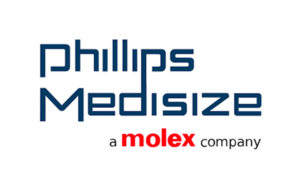 A survey conducted by Molex and its Phillips-Medisize medical device delivery division highlights the importance of digitized drug delivery.
A survey conducted by Molex and its Phillips-Medisize medical device delivery division highlights the importance of digitized drug delivery.
Lisle, Ill.-based Molex and Phillips-Medisize commissioned Dimensional Research to poll 215 pharmaceutical professionals who are stakeholders in a range of digital drug delivery devices, according to a news release.
Those devices are designed to provide a number of patient benefits, including the delivery of the correct dosages, usage tracking capabilities, interface with diagnostic devices and the recording and sharing of dose data for electronic medical records or patient reference.
One-third of those surveyed already market one or more digital drug-delivery therapies, while 65% expect most of their companies’ drug delivery options to be digitized within a decade. Eighty-eight percent of respondents ranked digital drug delivery as “extremely” or “very” important to their future plans.
“It’s encouraging to see the groundswell of interest in digitizing drug delivery to improve patient care and produce better outcomes,” Molex president of medical and pharmaceutical solutions Paul Chaffin said in the release. “The future of pharma lies in the design and development of patient-focused devices that are easy to use and can collect and connect data seamlessly and securely to personalize treatment while driving increased medication adherence.”
Additionally, 86% of those surveyed expect COVID-19 to have a long-term impact on patient interest in remote/self-care options, while 75% of participants reported that younger generations are more open to digital drug delivery.
The respondents also identified high-potential opportunities to improve patient care, including:
- The personalization of drug delivery to address patients’ specific needs and expectations (57%).
- Support for more effective dosing schedules (55%).
- Improved dosing accuracy (55%).
- Increased adherence to medication regimens (52%).
- Allowing patients to take medications at home rather than at a clinic or hospital (48%).
About two-thirds of the participants reported feeling that digitized offerings would provide “dramatically” or “notably” better patient outcomes compared with traditional methods. They listed business-related benefits of digital drug delivery as cost reduction through increased adherence (60% of respondents), improved efficiency through targeting labor-intensive behavioral support (54%) and more efficient and scalable means of patient support (53%).
Those polled did cite barriers for the future of digital drug delivery, with 96% of respondents reporting adoption challenges. Data privacy risk (40%), high device connectivity costs (39%), inadequate patient access to the internet (39%) and regulatory concerns (39%) comprise the potential roadblocks to the adoption of digital drug delivery options, respondents said.

